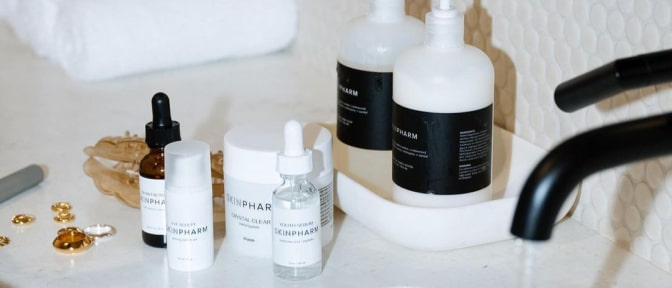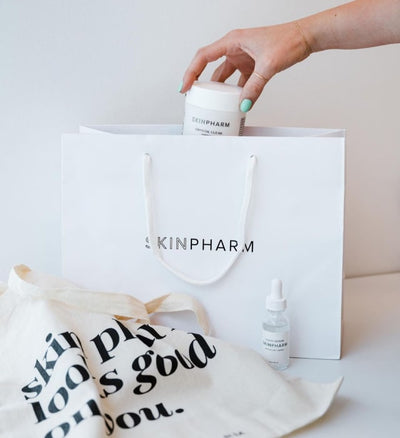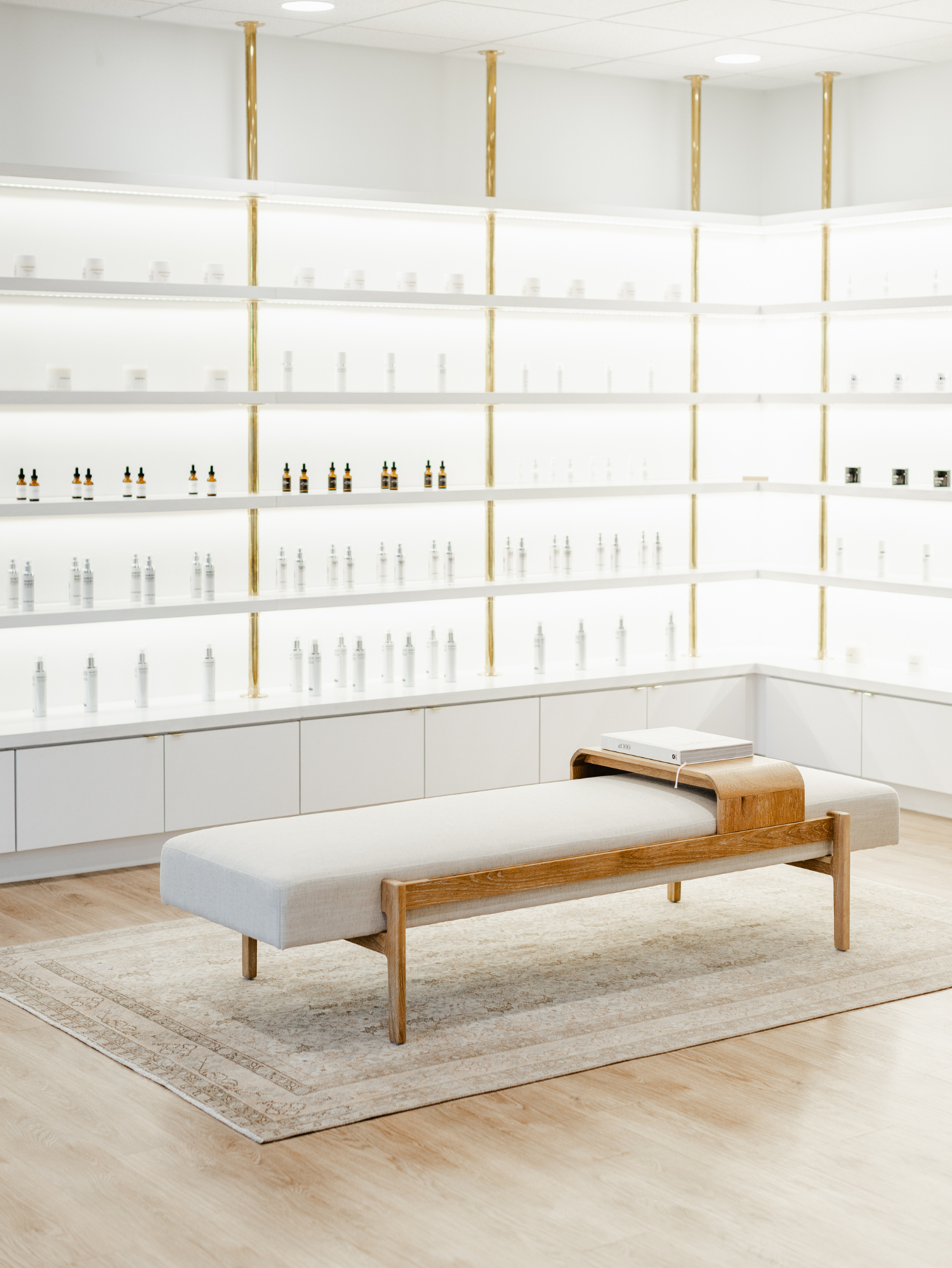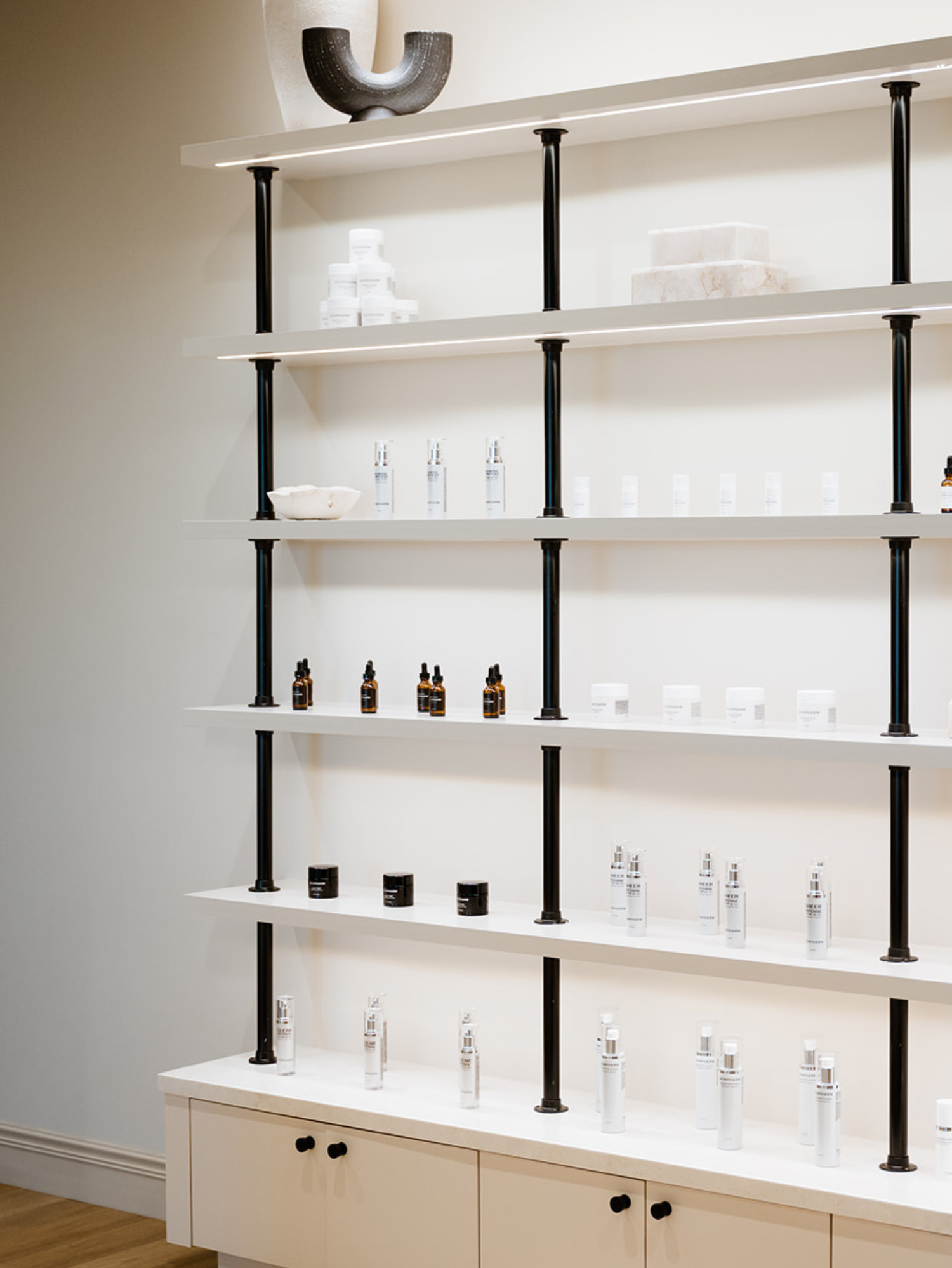Shop skin care
Clinics
VISIT OUR 9 CLINICS →
HOURS
Monday – Friday
9:30a – 5:30p
Skin Hydration: Why It’s Important + Tips

Keeping up with hydration is one of the most crucial ways to support your skin.
Properly hydrated skin looks dewy and radiant and tends to be more resilient and even-toned.
Skin hydration should always be taken seriously, but some people may not know how to hydrate effectively. Our skin care professionals are here to discuss the importance of skin hydration and share our tips for keeping your skin as moisturized as possible.
What are the signs of dry skin?
Dry skin isn’t always obvious. For some people dealing with dryness, the signs are a lot more subtle.
If you have dry skin, you may notice some of the following signs and symptoms:
- Visible patches of dryness
- Redness
- Increased sensitivity to skin care products
- Tightness
- Itching
- Dullness
- Increased breakouts
- Increased oil production
Spotting these signs quickly and taking the necessary steps to protect and hydrate your skin is crucial.
It’s also important to recognize that your skin type may change with time — your skin may go from oily to dry or from normal to sensitive as your hormones and lifestyle change. Adjusting with your skin is key.
What ingredients can help with skin hydration?
Knowing what ingredients to look for when considering a new product is critical. There are a lot of ingredients out there that claim to work moisturizing magic, but you shouldn’t always believe the hype.
Stick with science-backed ingredients so that you know you’re giving your skin the very best. Here are a few ingredients that can help soothe dry skin.
HYALURONIC ACID
When it comes to moisturizing ingredients, very few are as safe and effective as hyaluronic acid. This ingredient is generally safe for even sensitive skin, as it is naturally produced in the body as a lubricant.
Hyaluronic acid is extremely efficient at holding moisturize inside the skin. This ingredient is what’s known as a humectant, which is a type of moisturizing ingredient that draws and holds moisture in the skin.
While this is always important, it’s even more critical for those concerned with addressing signs of aging. Hyaluronic acid can help keep the skin resilient, helping it to bounce back from stress and reducing the appearance of fine lines and wrinkles by promoting elasticity.
CERAMIDES
Ceramides are fatty acid-based lipids that make up the layer of skin known as the moisture barrier (or stratum corneum). Providing the skin with additional ceramides can help it strengthen that barrier, which stops moisture from escaping while also keeping environmental toxins out.
Ceramides belong to a class of moisturizers called occlusives. These ingredients sit on top of your skin to help seal in moisture. Ceramides also have emollient properties, which means they can help soothe dry and flaking skin to support skin barrier function.
Finding a moisturizing product with plenty of barrier lipids, like Recovery Lotion, can help you support your skin’s natural ceramides and support your moisture barrier. As a result, your skin may feel more hydrated, and you may notice fewer blemishes as your skin barrier works its magic.
VITAMIN C
Topical vitamin C, also known as ascorbic acid, is well-known for its antioxidant properties and its brightening abilities. Vitamin C can help support the skin barrier, which makes it a powerful ingredient to add to your hydrating skin care routine. Vitamin C is also great for helping to reduce the appearance of dark spots.
Another one of vitamin C’s superpowers is its ability to help your body fight off free radical damage caused by chronic sun exposure. This damage, also called oxidative stress, can result in dark spots, dry skin and signs of aging like fine lines and wrinkles. While vitamin C is no replacement for sunscreen, there’s no denying it’s an effective multi-tasker.
What are some skin hydration tips?
Now that you have the right ingredients, here’s how to use them to hydrate your skin safely and effectively.
MOISTURIZE CONSISTENTLY
A frequent mistake people can make is not using moisturizer if they have a naturally oily skin type. While it may be more evident that you need hydration when you’re dealing with dry or dehydrated skin, oily skin can trick you into thinking that you don’t need to apply moisturizer.
However, sometimes, oily skin can actually be a sign of dry skin. If you’re lacking moisture, your skin may start to step up its natural oil production in an attempt to keep itself hydrated. This excess oil can contribute to other skin concerns, like extra breakouts and an unpleasant oily sheen.
INVEST IN A SKIN CARE ROUTINE
Crafting a well-rounded skin care routine (especially if you have dry skin) by including a gentle cleanser, serum and sunscreen is typically an effective way to address dry skin. Just make sure you’re looking for products that are rich in moisturizing ingredients like hyaluronic acid, glycerin and ceramides for every step of your routine.
Our Youth Serum, for example, can be applied between your cleanser and moisturizer. It contains multi-molecular weight hyaluronic acid, which can help thoroughly moisturize and brighten your skin.
When you do wash your skin, don’t be tempted to use the hottest temperature setting. Hot water can damage the skin’s moisture barrier, so aim for lukewarm water instead. Then, gently pat your skin dry.
You’ll also want to pay attention to ingredients that may trigger irritated skin, including exfoliating products like retinol. While these ingredients are incredibly popular for their ability to support collagen production and clear out pores, they can also dry out your skin.
If you do use these products, make sure to follow them with a soothing moisturizer that contains ingredients like aloe, squalane or niacinamide.
HYDRATE FROM THE INSIDE
Your skin care routine is crucial for keeping your skin hydrated. But it’s also essential that you hydrate your body from the inside, too.
Transepidermal water loss can happen for many reasons, impacting every part of your body in the process. Replacing your body’s hydration by drinking water is another way you can support your skin and overall wellness. Drinking the recommended amount of water can help give you the natural radiance of healthy skin.
Try replacing even one cup of coffee or bottle of soda with a glass of water a day. While this may seem small, it can make a world of difference in your hydration level. You can also use a humidifier in your home, which can support your skin hydration even further.
The bottom line...
Skin hydration is crucial for keeping your skin looking and functioning at an optimal level. If your skin doesn’t have enough moisture, it’s generally more likely to show earlier signs of aging.
Providing your skin with the hydration it needs, no matter how old you are, can help fight off those signs of aging. The key is knowing what ingredients to look for and how to use those ingredients to support your skin.
SOURCES:
Hyaluronic acid: A key molecule in skin aging | PMC
Ceramides and skin function | PMC
The importance of hydration | News | Harvard T.H. Chan School of Public Health

















